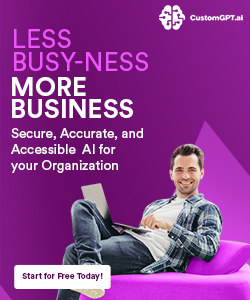Most educators and learners today are exploring the potential of artificial intelligence to redefine the educational landscape. By integrating AI into your learning experiences, you can unlock personalized pathways, enhance engagement, and access tailored resources that suit your individual needs. This blog post explores into the various ways AI technologies can transform how you acquire knowledge, making your journey more interactive, efficient, and effective than traditional methods alone. Discover how embracing AI can elevate your understanding and mastery of subjects, ultimately better preparing you for future challenges.
The Role of AI in Personalized Learning
Your learning experience can be significantly enhanced through personalized learning, allowing you to engage with content tailored to your individual needs, preferences, and pace. With the help of AI, educational environments can adapt seamlessly to your strengths and weaknesses, ensuring that you receive the most effective and engaging learning experience possible. This approach not only maximizes your understanding but also fosters motivation and a sense of ownership over your educational journey.
Adaptive Learning Technologies
Beside offering a one-size-fits-all curriculum, AI-powered adaptive learning technologies assess your progress in real-time. They dynamically adjust content and difficulty levels, ensuring that you are challenged just enough to promote growth without becoming frustrated. This responsive approach allows for a more engaging learning experience, as the material evolves based on your unique learning patterns.
Tailored Educational Content
By using advanced algorithms, AI curates educational materials that cater specifically to your interests and academic requirements. This means you can dive deeper into subjects you are passionate about while skipping over areas where you already possess strong knowledge. Tailored content not only enhances your engagement but also promotes a more meaningful understanding of the subject matter.
Indeed, the concept of tailored educational content goes beyond merely presenting subjects aligned with your interests. AI analyzes your past interactions, assessments, and even learning preferences to build a comprehensive profile that informs content delivery. As a result, you receive personalized recommendations for resources, exercises, and assessments, enhancing your learning curve and overall retention. This sophisticated level of personalization transforms a traditional educational experience into a journey that resonates deeply with your individual learning style and goals.
Enhancing Accessibility Through AI
One of the most significant advancements AI brings to education is its ability to enhance accessibility, ensuring that learning experiences cater to all individuals. By leveraging AI technologies, educational platforms can offer personalized learning paths, real-time feedback, and adaptive content that fits your unique needs. This inclusive approach helps to break down barriers, making it easier for everyone to engage with and excel in their educational pursuits.
Support for Diverse Learners
Behind every learner is a unique story, and AI recognizes this by providing tailored support for diverse learning needs. AI-driven tools can analyze various learning styles and preferences, allowing you to receive customized resources that resonate with your individual approach. This level of personalization empowers you to thrive academically, ensuring your path to knowledge is as effective and enjoyable as possible.
Overcoming Language Barriers
Through innovative AI solutions, you can easily navigate language barriers that might hinder your learning journey. These technologies, such as translation tools and language learning apps, enhance communication and comprehension across different languages. As a result, you can access a wealth of resources regardless of your linguistic background.
Language plays a pivotal role in your learning experience, as understanding concepts often relies on effective communication. AI tools can translate lectures, reading materials, and interactions into various languages. This capability not only allows you to grasp complex subjects but also fosters a more inclusive learning environment where ideas and insights can flow freely, enhancing collaboration and engagement among peers from diverse backgrounds.
AI-Driven Assessment and Feedback
Clearly, AI-driven assessment and feedback systems redefine how you evaluate learning outcomes and improve student engagement. By leveraging sophisticated algorithms, these tools provide insights that are not only immediate but also personalized. You receive tailored feedback that addresses specific learning gaps, enabling you to advance in your studies more effectively than traditional assessment methods allow.
Real-Time Performance Tracking
Along with these advancements, real-time performance tracking provides you with instant insights into your progress. You can monitor your strengths and weaknesses as you learn, ensuring that you stay on the right path. This timely data allows you to adjust your study habits proactively, enhancing your overall educational experience and outcomes.
Automated Grading Systems
Feedback from automated grading systems ensures that you receive timely evaluations of your work without delays. These systems assess assignments quickly and often provide constructive comments that help you understand areas for improvement, making the learning process more dynamic and interactive.
With automated grading systems, you benefit from consistent and objective evaluations that minimize biases often present in traditional grading. You can submit your work and receive detailed feedback almost immediately, allowing you to make necessary adjustments without waiting for prolonged periods. This boosts your motivation and allows you to focus on mastering the content, ultimately enhancing your learning journey.

Interactive Learning Environments
All educators are constantly seeking innovative ways to enhance the learning experience, and interactive learning environments provide a powerful solution. These environments encourage active participation and collaboration among learners, allowing you to engage deeply with the material. Through tools like collaborative platforms and real-time feedback systems, you can not only grasp complex concepts better but also cultivate crucial skills such as critical thinking and teamwork. By immersing yourself in these dynamic spaces, your educational journey can become more enriching and fulfilling.
Virtual Reality and Simulations
Along with innovative technology, virtual reality and simulations transform conventional learning into immersive experiences. By allowing you to step into realistic scenarios, these tools provide a safe space to experiment and practice skills. For instance, in a virtual lab, you can conduct experiments that might be too dangerous or costly in real life. This approach not only enhances your understanding but also boosts your confidence in applying knowledge practically.
Gamification of Education
Above all, gamification of education adds excitement and motivation to your learning process. By incorporating game elements such as points, badges, and leaderboards, educators create an engaging atmosphere that encourages you to strive for mastery. This playful approach transforms tedious tasks into enjoyable challenges, fostering a sense of accomplishment that keeps you motivated and eager to learn.
Considering how gamification reshapes education, it becomes evident that this strategy not only enhances engagement but also boosts knowledge retention. By turning lessons into interactive games, you can embrace a competitive spirit that drives you to complete tasks and achieve educational goals. As you progress through various levels and earn rewards, the process becomes more enjoyable, making it easier for you to absorb and apply what you learn. This innovative method enables you to take charge of your educational journey while enjoying the experience.
Fostering Collaboration with AI Tools
After traditional classroom settings, AI tools present a transformative opportunity for enhancing collaboration among students. By utilizing AI platforms, you can engage in interactive discussions, brainstorm ideas, and share resources more efficiently. These tools create a supportive environment where collaboration flourishes, helping you to grow as a team while leveraging technology to solve complex problems.
AI-Powered Group Projects
Collaboration is taken to new heights with AI-powered group projects. You can access sophisticated project management features, allowing your team to assign roles, track progress, and exchange feedback effortlessly. This ensures that everyone remains accountable and on the same page, enhancing your overall learning experience.
Facilitating Teacher-Student Communication
The integration of AI also improves the lines of communication between you and your teachers. AI tools can streamline feedback processes, allowing you to receive personalized guidance and support when it matters most.
TeacherStudent interactions become more meaningful and productive with the support of AI systems. These platforms can analyze your learning patterns and provide targeted suggestions, enabling your teachers to tailor their approach to your specific needs. As a result, you’ll find that discussing challenges and sharing insights becomes much easier, fostering a closer relationship that enhances your overall educational journey.
Ethical Considerations in AI Education
Now, as AI continues to transform educational practices, it’s vital to examine the ethical implications that arise. Issues like data privacy and algorithmic bias must be thoroughly addressed to ensure that AI serves to enhance learning without compromising student rights or equity. Your awareness of these ethical considerations will enable informed decision-making and foster a more inclusive educational environment.
Data Privacy Concerns
Against the backdrop of increasing data usage, concerns about privacy in AI learning environments are mounting. You must consider how your personal information is collected, stored, and utilized by AI systems. Ensuring that educational tools prioritize your privacy rights will help maintain trust and encourage effective learning.
Addressing Bias in AI Algorithms
Along with privacy concerns, bias in AI algorithms poses significant challenges in education. You may find that AI-driven tools unintentionally favor certain demographics or perspectives, leading to unequal learning opportunities. Understanding this issue can empower you to demand more equitable AI applications in educational settings.
Plus, addressing bias in AI algorithms involves continuous monitoring and refining of the technology. It’s vital for developers to remain vigilant against inherent prejudices in their data sets, as these can lead to skewed educational outcomes. Advocating for diverse training data and algorithm transparency will help ensure that AI technologies cater to a broad range of learners and create a more equitable educational landscape.
Conclusion
Taking this into account, you can see that AI has the potential to significantly enhance your learning experiences by personalizing content, providing instant feedback, and fostering engagement through interactive tools. By integrating these advanced technologies into your educational journey, you can not only access a wealth of information but also benefit from tailored learning paths that adapt to your unique needs and preferences. Embracing AI in your studies allows you to explore knowledge in innovative ways, ultimately enriching your understanding and skills.
FAQ
Q: How can AI personalize learning experiences for individual students?
A: AI can analyze a student’s learning style, strengths, and weaknesses through data gathered from their interactions and assessments. By employing adaptive learning algorithms, AI can create tailored educational content that meets each student’s unique needs, offering personalized quizzes, study materials, and feedback. This individualized approach enhances engagement and helps students grasp complex concepts at their own pace.
Q: In what ways does AI facilitate collaborative learning among students?
A: AI technologies, such as intelligent tutoring systems and social learning platforms, allow students to connect and collaborate more effectively. By using AI to group students with similar learning goals or complementary skills, these platforms can foster teamwork and peer-to-peer learning. Additionally, AI can suggest collaborative projects based on students’ interests, promoting a shared learning journey that cultivates critical thinking and communication skills.
Q: Can AI improve access to education for diverse learner populations, and if so, how?
A: Yes, AI can significantly improve access to education by providing resources in multiple languages, enabling voice recognition for students with disabilities, and customizing materials based on differing educational backgrounds. AI-driven platforms can offer interactive and inclusive content that caters to various learning styles and abilities, ensuring that all learners—regardless of their circumstances—have the opportunity to participate and succeed in educational environments.










